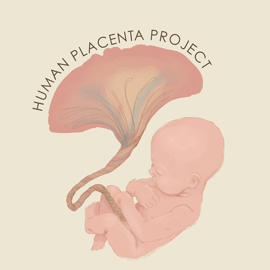Better understanding of the placenta promises to help improve health of mothers and children
The National Institutes of Health has announced $46 million in research awards for the Human Placenta Project, an initiative to revolutionize understanding of the placenta. The awards will fund technology development and testing to assess placental function throughout pregnancy, with the ultimate goal of improving pregnancy outcomes and lifelong health.

"People usually take the placenta for granted. But when it doesn't work the way it should, it can put the entire pregnancy at risk—along with the health of mother and fetus," said Catherine Spong, M.D., deputy director of NIH's Eunice Kennedy Shriver National Institute of Child Health and Human Development, which is leading the initiative.
The placenta is a critical organ that shuttles blood, oxygen, and nutrients from mother to fetus and clears harmful waste like carbon dioxide. It also produces hormones to help sustain the pregnancy and regulate the immune system so that mother and fetus can coexist.
Many problems of pregnancy—such as preeclampsia, preterm birth, and even stillbirth—can occur because of problems with the placenta. If researchers can develop tools to monitor the placenta from the earliest stages of pregnancy, physicians may one day be able to identify problems sooner and intervene more quickly.
"As essential as it is, there's still so much we don't know about the placenta," said Dr. Spong. "The good news is that science has advanced to such a degree that we have a better opportunity than ever before to learn how the placenta works. That knowledge may one day help improve clinical care."
NIH has funded 19 projects, totaling approximately $46 million in this fiscal year. The awards will support development of safe, noninvasive methods to monitor the placenta in real time, throughout all stages of pregnancy. The funds also will support research on environmental factors that may affect placental function (see the U01 awards below).
The awardees are:
Albert Einstein College of Medicine/Montefiore Health System, New York City
Dr. Zev Williams (1R01HD086327-01)
Children's Hospital Corporation, Boston
Dr. Patricia Ellen Grant (1U01HD087211-01)
Eastern Virginia Medical School, Norfolk
Dr. Alfred Z. Abuhamad (1R01HD086313-01)
Hackensack University Medical Center, Hackensack, New Jersey
Dr. Stacy Zamudio (1U01HD087209-01)
The Hospital for Sick Children, Toronto
Dr. John G. Sled (1U01HD087177-01)
King's College London
Dr. Mary Rutherford (1U01HD087202-01)
Magee-Womens Research Institute and Foundation, Pittsburgh
Dr. Yoel Sadovsky (1R01HD086325-01)
Oregon Health and Science University, Portland
Dr. Antonio E. Frias (1R01HD086331-01; 1U01HD087182-01)
Stanford University, Stanford, California
Dr. Jeremy Dahl (1R01HD086252-01)
Dr. Virginia D. Winn (1R21HD086253-01)
University of California, Los Angeles
Dr. Sherin U. Devaskar (1U01HD087221-01)
University of Pennsylvania, Philadelphia
Dr. Nadav Schwartz (1U01HD087180-01)
University of South Florida, Tampa
Dr. Anthony O. Odibo (1U01HD087213-01)
University of Western Ontario, London
Dr. Charles A. McKenzie (1U01HD087181-01)
University of Wisconsin-Madison
Dr. Dinesh Manilal Shah (1U01HD087216-01)
Virginia Commonwealth University, Richmond
Dr. Charles E. Chalfant (1U01HD087198-01)
Wake Forest University Health Sciences, Winston-Salem, North Carolina
Dr. Liliya M. Yamaleyeva (1R21HD086357-01)
Washington University in St. Louis
Dr. Joel Richard Garbow (1R01HD086323-01)
The Human Placenta Project receives additional support from the National Institute of Biomedical Imaging and Bioengineering (NIBIB).
“The scope of awards represents a depth of interest in studying the human placenta, including a wide range of advanced imaging modalities,” said Roderic Pettigrew, Ph.D., M.D., director of NIBIB. “Non-invasive techniques, such as ultrasound and magnetic resonance imaging, and the development of other imaging modalities are essential for in vivo assessment of placental function and development during pregnancy.”
For more information about the Human Placenta Project, please visit https://www.nichd.nih.gov/research/supported/HPP/default.
Note: This press release has been updated to include a quote from NIBIB Director Dr. Roderic Pettigrew.
###
About the Eunice Kennedy Shriver National Institute of Child Health and Human Development (NICHD): NICHD sponsors research on development, before and after birth; maternal, child, and family health; reproductive biology and population issues; and medical rehabilitation. For more information, visit the Institute's website at http://www.nichd.nih.gov.
About the National Institute of Biomedical Imaging and Bioengineering (NIBIB): NIBIB supports emerging technology research and development within its internal laboratories and through grants, collaborations, and training. More information is available at the NIBIB website: http://www.nibib.nih.gov.
About the National Institutes of Health (NIH): NIH, the nation's medical research agency, includes 27 Institutes and Centers and is a component of the U.S. Department of Health and Human Services. NIH is the primary federal agency conducting and supporting basic, clinical, and translational medical research, and is investigating the causes, treatments, and cures for both common and rare diseases. For more information about NIH and its programs, visit http://www.nih.gov.

 BACK TO TOP
BACK TO TOP